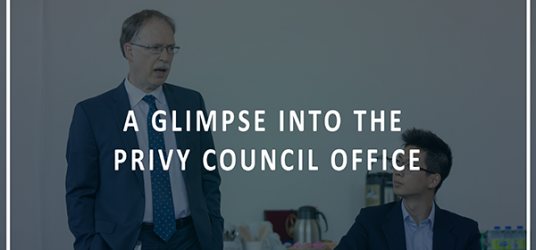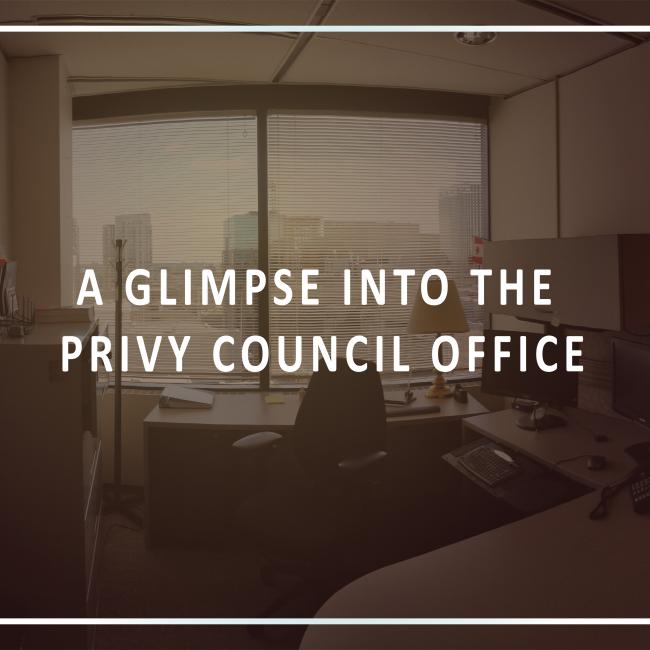

I attended the PCO Student Meet and Greet and had the pleasure of meeting Ian Shugart, the Clerk of the Privy Council. It was an informal opportunity to meet other students, discuss our experiences, and ask the Clerk any questions that may help us gain a closer look at the inner workings of the PCO.
The Clerk kicked off the session with an introduction to his role. He explained that the Clerk is a title for the Head of the federal public service. He is also the Secretary to the Cabinet and is responsible for being the principal public service advisor to the Prime Minister.
Next, he opened up the floor for questions.
As the former Deputy Minister of Foreign Affairs, Mr. Shugart has only recently transitioned to the role of the Clerk of the Privy Council. So when it was my turn to pick his brain, I explained that we are all new to the PCO. He has been at the PCO for eight weeks and it’s been four weeks for the most of us. I was curious to hear what he was doing personally to help adjust to his new role as the Clerk, and how students can learn from that.
He took a moment to gather his thoughts and started to explain that the range of his files has become broader. With so many files to oversee, the Clerk needs to understand and determine which files are to take precedence in order to administer the government’s priorities and objectives.
“This requires judgement, everyone tells me what to do so the most important decision I make in a week is what will I not do.”

The Clerk advised us to learn to cultivate and recognize good judgement. To elaborate, he used the example of striving for excellence.
As public servants, we must strive for excellence, and not just be good enough. But when pressed for time, we need judgement to properly balance between excellence and good enough.
I immediately thought of the homework analogy. When project deadlines and final exams are fast approaching, there is not enough time to strive for excellence on everything. Hence, we must exercise proper judgement on what is good enough to obtain the best grades possible.
In the workplace setting, public servants often navigate between multiple priorities and deadlines. From my experience, I believe it is fine to acknowledge time as a constraint. But when time permits, we should all strive for excellence.
The Clerk urged us to be professionals and he stressed the importance of developing the skill to ask the right questions and to challenge our assumptions.
He described the public service as an asset to our country. As the public service, we serve the government the people of Canada elect. It is our responsibility to provide governments with evidence and objective advice to keep standards high. This would mean to deploy all existing tools and disciplines to give our advice based on facts and analysis.
I would like to thank the Clerk for taking the time to share with us his vision and lessons for young professionals. The PCO offers a great environment for us to apply these lessons and I believe they are applicable in both public and private sectors. We hope to hone our skills, find harder questions, and generate greater discussions in the future. In addition, I would encourage other students to take advantage of similar opportunities in engaging their employers during their co-op.
















